Question And Answer
Publications
Articles, publications, books, tools and multimedia features from the U.S. Institute of Peace provide the latest news, analysis, research findings, practitioner guides and reports, all related to the conflict zones and issues that are at the center of the Institute’s work to prevent and reduce violent conflict.
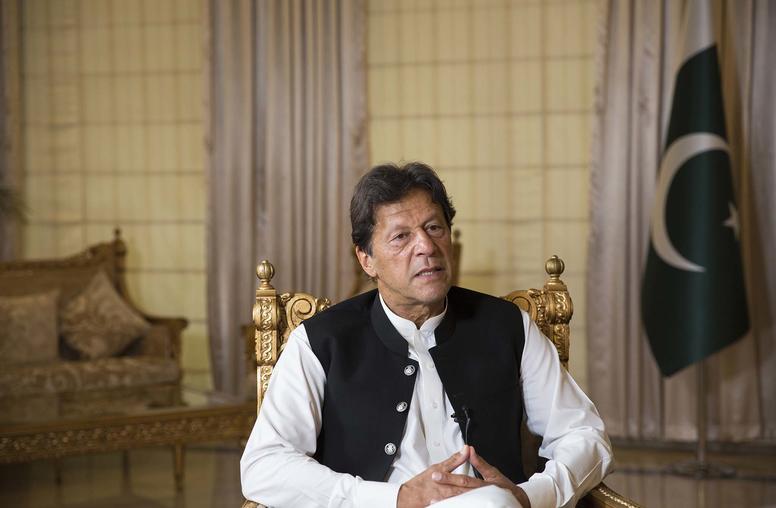
Pakistan Senate Election Upsets Government Efforts to Solidify Power
Pakistan held indirect elections on March 3 for the Senate, its upper house of Parliament, which is elected by sitting legislators in the National Assembly (the lower house of Parliament) and each of the provincial assemblies. Given the typically party-line vote, Pakistani Senate elections tend to be mundane affairs, with the results often preordained. However, in last week’s elections the ruling Pakistan Tehreek-e-Insaf (PTI) party, despite having a numerical majority in the national and provincial assemblies, failed to forestall defections among some lawmakers and in doing so failed to take control of the Senate from the opposition.
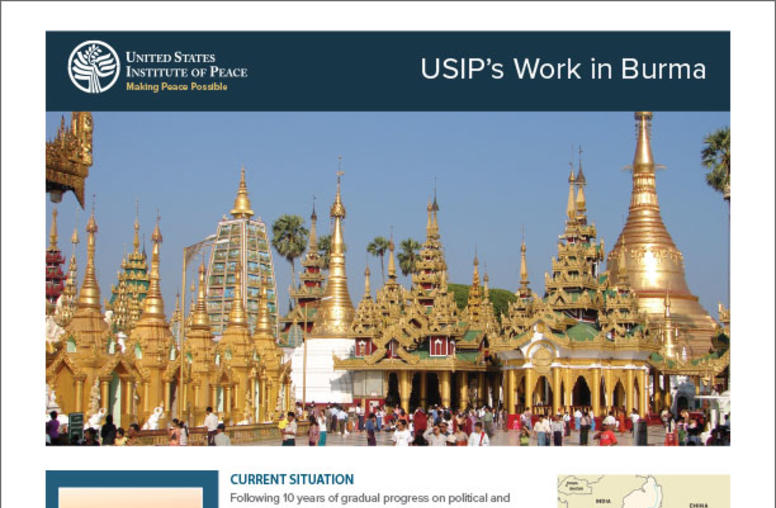
The Current Situation in Burma
Following 10 years of gradual progress on political and economic liberalization—and a landslide victory for the NLD in the 2020 election—the Burmese army took power in a coup on February 1, 2021, just hours before the newly elected members of Parliament were set to convene. The army has quickly reversed hard-won progress toward democracy and human rights in Burma. It has arrested elected officials, activists, and journalists, done away with even the most basic civil and political rights, blocked access to social media, and, intermittently, to the internet entirely.
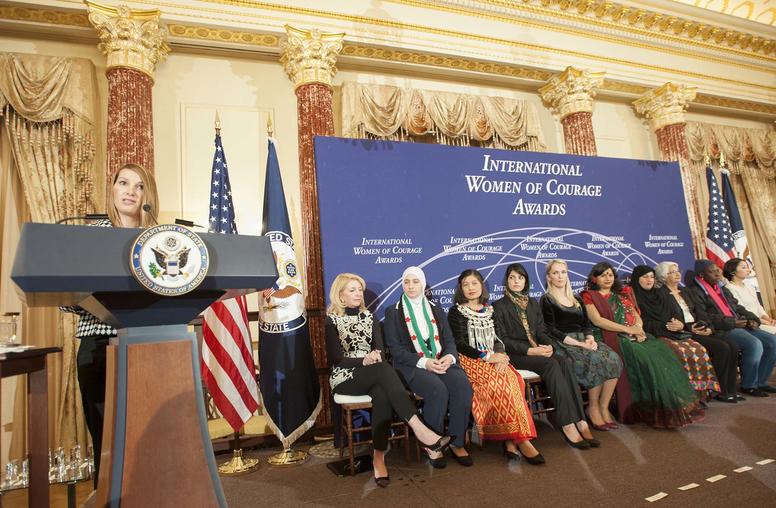
How to Advance a Feminist U.S. Foreign Policy
With the Biden-Harris administration halfway through its pivotal first 100 days, America’s foreign policy is under review. A key consideration should be the role of gender, as the United States is uniquely placed to become a global “gender superpower” by employing a feminist foreign policy. But what does that mean practically? And how can the government address challenges like Yemen’s humanitarian crisis, the Afghan peace process, or broader national security goals by taking into account the perspectives of women and gender minorities? Can the United States use its progress in areas such as the Women, Peace, and Security (WPS) Agenda to emerge as a gender superpower?
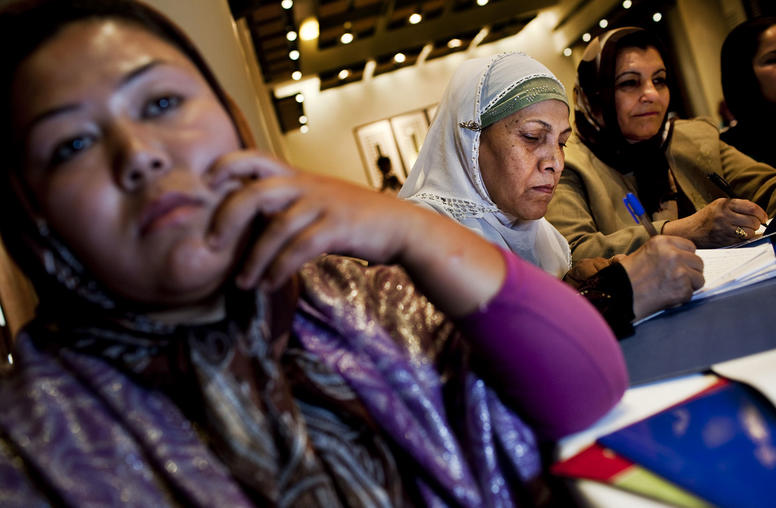
Amid Peace Talks, Afghan Women’s Rights Hang in the Balance
Three Afghan women journalists and a medical doctor in the eastern city of Jalalabad were shot dead last week, part of a wave of killings—perpetrated by both ISIS and the Taliban—targeting rights activists, judges and journalists. The soaring violence in Afghanistan illustrates the stakes for Afghan women and civil society as the Afghan government and Taliban negotiate in Doha and the Biden administration considers its Afghanistan policy.
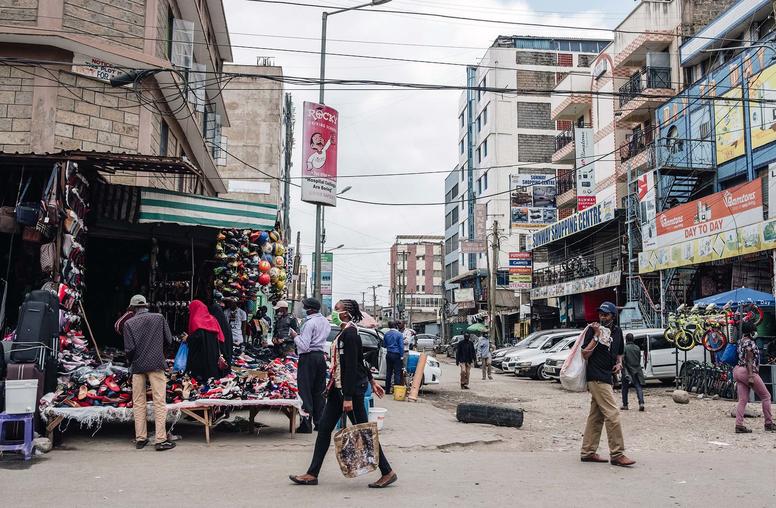
A New U.S. Approach to Help Fragile States Amid COVID-Driven Economic Crisis
The global economy is projected to rebound from the effects of COVID-19 in 2021, but the world’s most fragile states may not share in the upswing. Saddled with economic collapse and soaring debt, developing economies are likely to be left further behind after shrinking about 5 percent last year, according to World Bank estimates. As a result, over 55 million people could be plunged deeper into poverty, fueling social and political grievances and increasing the risks of instability.
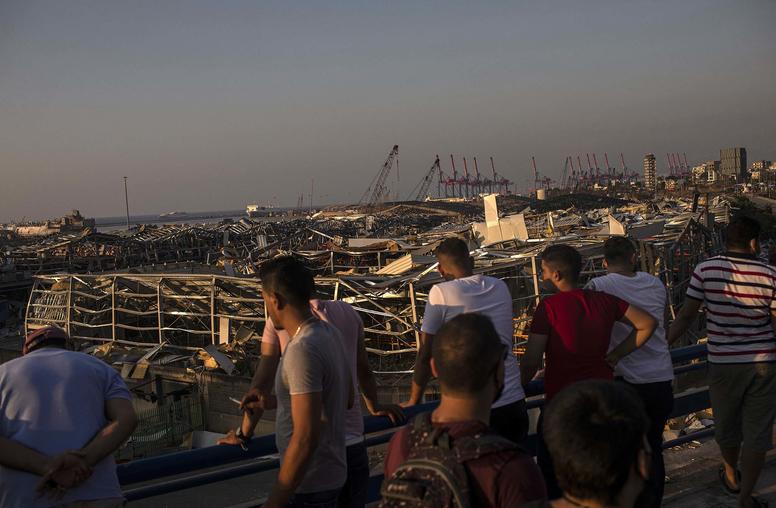
As Lebanon Melts Down, Can it Avert Total Collapse?
As Lebanon marks the seven-month anniversary of the catastrophic blast at the Beirut port last August 4, the country appears to be in a rapidly accelerating free fall. Lebanon’s currency continues to plummet in value, hitting new lows this week. With foreign exchange reserves falling, Lebanese officials have raised fresh concerns that the country may soon not be able to import key necessities such as food and fuel. Meanwhile, despite a COVID pandemic surge, angry Lebanese have taken to the streets across the country, protesting the rapidly deteriorating economic and social conditions. At the same time, efforts to form a new cabinet following the government’s collapse last August remain stalemated.
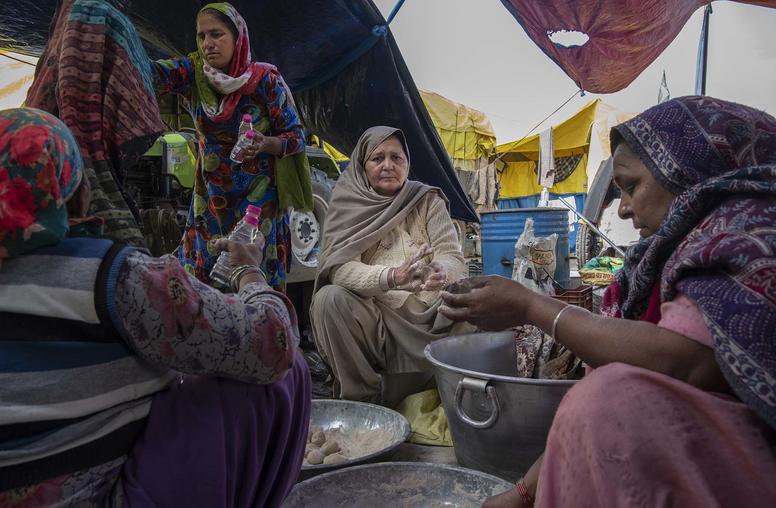
In India, Women Propel World’s Largest Protest Movement
Hundreds of thousands of farmers have been protesting new farm laws on the outskirts of the Indian capital city of New Delhi since September 2020. The prominent presence of women in what is perhaps the world’s largest ongoing protest movement, and certainly the biggest domestic challenge facing Indian Prime Minister Narendra Modi’s government, has put a spotlight on the important role women play in agriculture in this South Asian nation; it also marks a milestone in women’s struggle for equality, and their leadership of nonviolent movements.
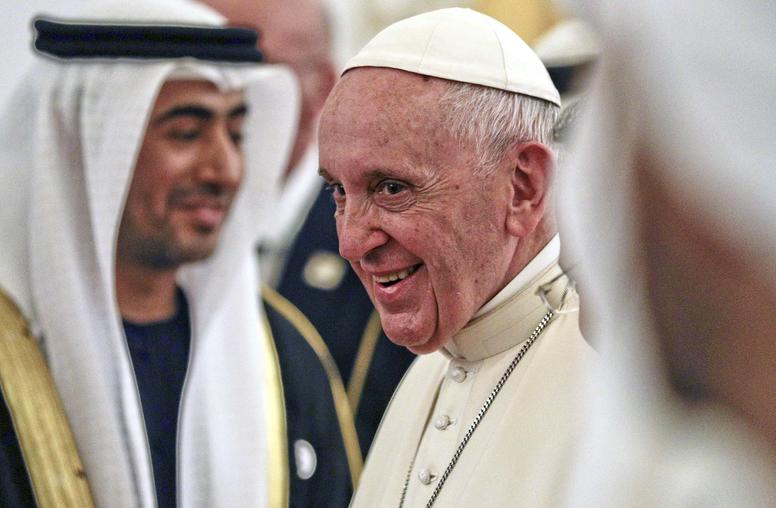
The Pope's Visit to Iraq and the Future of the Country’s Christians
The visit of His Holiness Pope Francis to Iraq this week happens in a context of despair felt across Iraq’s ethnic, provincial and sectarian spectrum. Christians in Iraq, victims of decades of oppression, look at this visit as a symbol of hope. They also hope it will help address some of their lingering fears. The pope’s priorities for Iraq’s Christians should be formulated in specific terms. While Christians in Iraq remain hemmed in on how to deal with the past, but optimistic about their future, most feel overwhelmed by the upcoming visit of Pope Francis. As in many other cases, some of the expectations from the visit are indeed too high to meet.
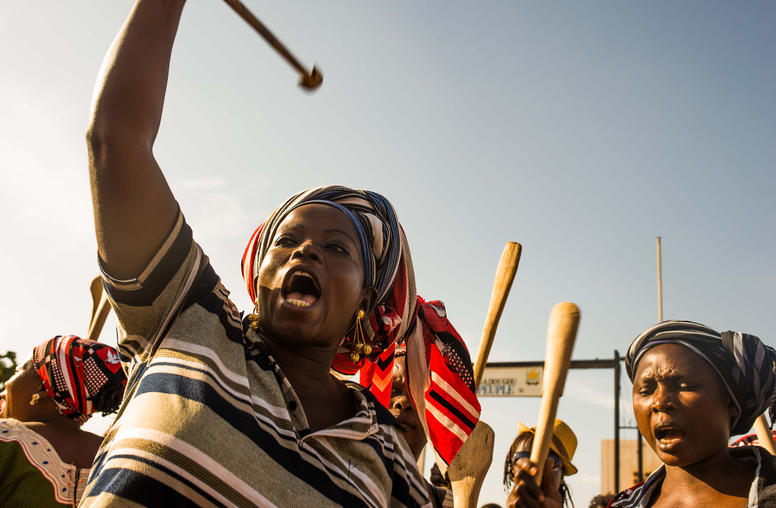
Mobilization, Negotiation, and Transition in Burkina Faso
In October 2014, a massive popular uprising unseated Burkina Faso’s long-time president, Blaise Compaoré, and drove a civilian-led transition that culminated in free and fair elections in November 2015. This report shows the importance of the national culture of dialogue and consensus and the benefit of a vast, resilient network across negotiating groups. Although violence in the country has since increased, lessons from Burkina Faso’s transition can inform the dynamics of popular mobilization, negotiations, and prospects for long-term peace and democracy in other settings.
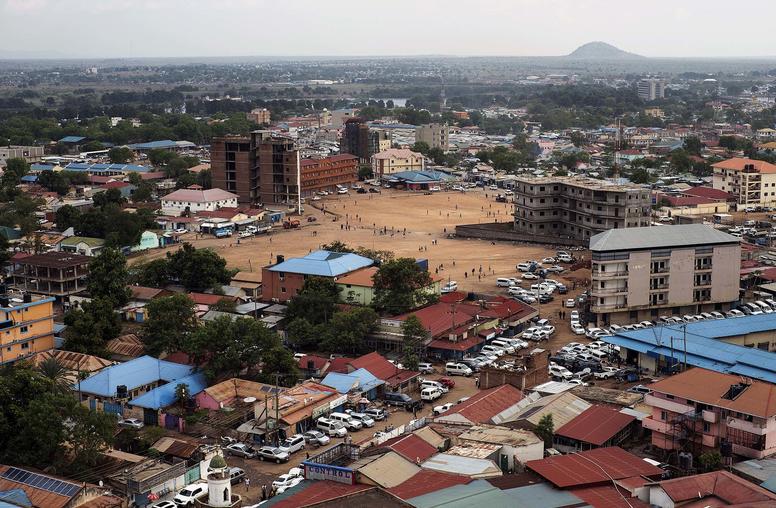
South Sudan: From 10 States to 32 States and Back Again
Last year, South Sudan reintroduced 10 subnational states in South Sudan, in place of the 32 states controversially created in 2017. Far from being an obscure matter of administrative organization, the initial, dramatic redivision of territory in the midst of protracted violence and large-scale displacement had a significant impact on representation, as well as social, economic, and political relations throughout the country. In 2018-19, researchers commissioned by USIP sought to better understand the decision-making process behind the creation of the 32 states in South Sudan. Researchers Matthew Pritchard and Aly Verjee discuss their findings in light of current developments.